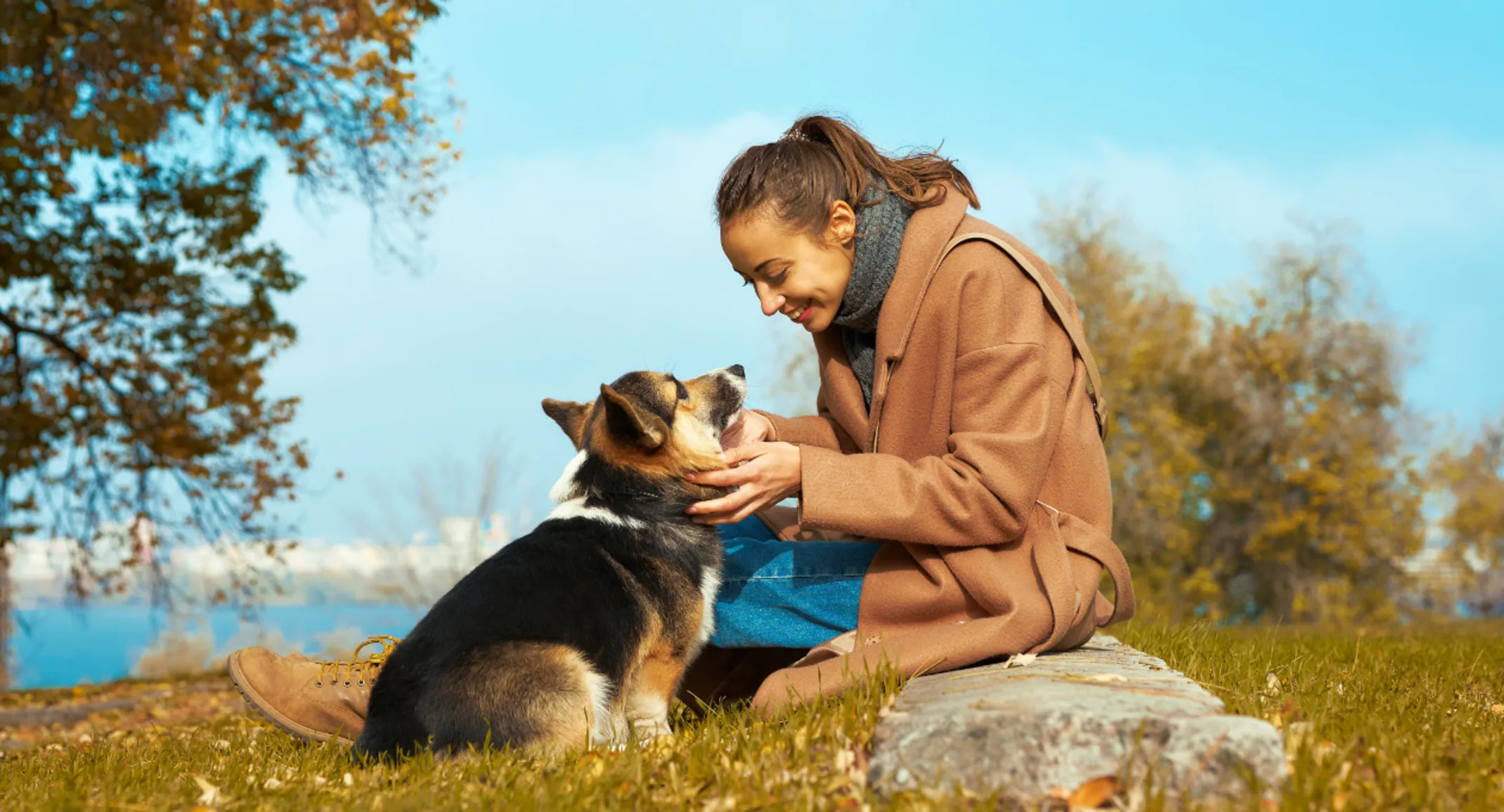Fall Hazards for Animals: What Pet Owners Should Know
September 8, 2025 · Pet Safety

As the leaves begin to change and cooler temperatures set in, autumn can be a wonderful time to enjoy the outdoors with your furry companions. However, fall also brings unique risks that every pet owner should be aware of. At Veterinary Emergency and Referral Hospital of West Toronto, we want to help you keep your animal family members safe this season.
Food Dangers
Autumn celebrations often involve foods that can be harmful to animals:
Halloween candy: Chocolate, xylitol (a common sugar substitute), and raisins are toxic to dogs and cats.
Thanksgiving leftovers: Turkey bones, fatty foods, and onions can cause digestive upset or even life-threatening conditions like pancreatitis.
Baked goods: Nutmeg, grapes, and certain nuts (like macadamia) should always be kept away from curious pets.
Signs to watch for: vomiting, diarrhea, drooling, lethargy, tremors, difficulty walking, or refusal to eat. In severe cases, seizures or collapse may occur.
Toxic Plants
Several plants that flourish or are brought indoors during fall can pose risks:
Mushrooms: Wild mushrooms can be toxic and grow in abundance during damp autumn months.
Autumn Crocus: This seasonal flower is highly poisonous to pets.
Indoor plants: Lilies, chrysanthemums, and poinsettias (often seen in the later fall) can cause stomach upset or more serious illness.
Signs to watch for: sudden vomiting, abdominal pain, drooling, diarrhea, weakness, or changes in heart rate.
Weather Changes
Fall weather can shift quickly in Ontario. Cooler temperatures, rain, and early frosts can pose challenges:
Hypothermia risk: Short-haired and senior animals may become chilled quickly, especially at night.
Slippery leaves: Wet leaves can create hazards during walks, increasing the chance of slips or paw injuries.
Rodenticides and antifreeze: As homeowners prepare for winter, toxic products are often put out that can harm pets if ingested. Even small amounts of antifreeze can be fatal.
Signs to watch for:
Hypothermia: shivering, weakness, pale gums, or lethargy.
Antifreeze or rodenticide ingestion: vomiting, drooling, loss of coordination, seizures, or sudden collapse.
Encounters with Wildlife
Autumn is an active time for wild animals preparing for winter:
Raccoons, skunks, and coyotes are more likely to be out looking for food. This can lead to unexpected encounters during walks or in backyards.
Wildlife may carry diseases or parasites, making interactions dangerous.
Signs to watch for: bite wounds, scratches, limping, swelling, sudden behavioral changes, or signs of infection (redness, pus, foul odor). If sprayed by a skunk, eye irritation and difficulty breathing can also occur.
Joint Injuries & Orthopedic Concerns
As the seasons change, activity patterns often shift for dogs. After a summer of running, swimming, and long walks, pets may suddenly encounter cooler weather, slippery leaves, and uneven terrain — all of which can increase the risk of sprains or joint injuries.
Large breeds and active dogs are particularly prone to injuries like cruciate ligament tears, hip issues, or luxating patellas. In some cases, these injuries may require surgical intervention to restore mobility and comfort.
Signs to watch for: limping, favoring one leg, difficulty rising, reluctance to jump or climb stairs, stiffness after exercise, or yelping when moving.
If your companion shows any of these symptoms, prompt veterinary assessment is key. At Veterinary Emergency and Referral Hospital of West Toronto, our surgical team is equipped to diagnose and treat orthopedic injuries — including advanced surgical options when necessary.
Seasonal Allergies and Health Concerns
Like people, pets can develop seasonal allergies. In fall, mold spores from damp leaves or pollen can trigger itchy skin, watery eyes, or respiratory issues. Additionally, arthritis may flare up in older pets as temperatures drop.
Signs to watch for: excessive scratching, licking paws, ear infections, watery eyes, sneezing, or coughing. For arthritis, look for stiffness, reluctance to climb stairs, or difficulty rising after rest.
Keeping Your Companion Safe This Fall
By staying alert to seasonal hazards, you can ensure your furry friends enjoy a safe and happy autumn. If you ever suspect your animal has ingested something toxic, been injured, or is showing sudden changes in behavior, contact your veterinarian immediately.
For urgent care, our emergency team at Veterinary Emergency and Referral Hospital of West Toronto is available 24/7 to provide immediate support.
📍 755 Queensway East, #116, Mississauga, ON, L4Y 4C5
